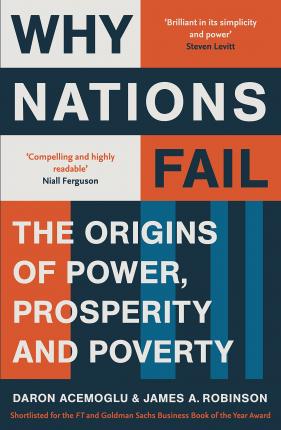
“Why Nations Fail,” follows a simple logic and narrative: that it is the awful politics of a country that sends it careening into destruction. But, it is also a bewildering revelation: If the diagnosis is so simple, why do nations continue to engage in perpetual bickering that invariably lead to their own downfall? Daron Acemoglu and James A. Robinson, two of the best economists in the field, took the question back in time. They delved into the failure of the Roman, Mayan, and other empires.
The revealing answers they find come to this: Certain forms of revolutions can completely upend the ancient regime to give a country a new start. The 1688 English Revolution and the 1789 French Revolution, for example, cruel and brutal in their aftermath as they were, proved pivotal in giving England and France a new ballast to start from ground zero. But, like many economists, they neglected the wretched events in Cambodia during the reign of Pol Pot. The latter, too, tried to re-engineer Cambodia from the ground up. The result was a devastating killing field, where more than 3.5 million Cambodians were killed; nearly 1/3 of the entire population.
Similarly, the Chinese cultural revolution and the Great Leap Forward killed tens of millions of Chinese. While both events paved the way for China to accept the “magic of the market,” there is no guarantee that China has embraced liberalism in whole. Every year, more than 250,000 protests can still be found in and across China. These protests are usually dispersed and clamped down upo. But they always focus on economic issues like back wages or stagnant incomes. “When Nations Fail,” spoke of self-destructive politics. But, equally, pernicious is the failure of the ruling authorities to respond quickly and adequately to the plight of the people.
Indeed, in every first world country, there is a third world citizenry. In every third world country, there is a first world elite, Lance Morrow, a Time magazine journalist once wrote. “When Nations Fail,” spoke of the destructive nature of politics, but not the desolate impact of a system of economy that heavily favors the rich.
